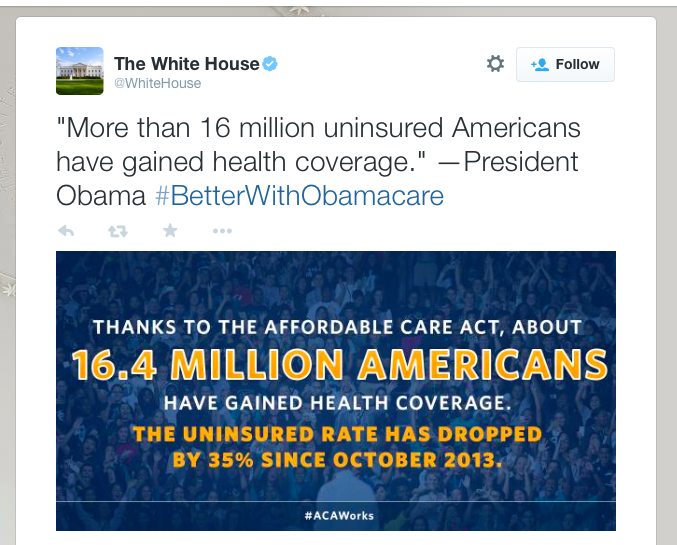As a practicing doctor in California it troubles me that those with the ability to influence health care legislation have either been politically motivated to remain silent, or strikingly inarticulate when it comes to voicing the major issues patients and taxpayers will face with the new health care bill. My own, long-held view has been that any reform should be of the free market variety.
In that sense, I’m increasingly scared as I learn more about what’s inside the health legislation passed by Congress not long ago. Despite the rising level of unhappiness with what has transpired, it dismays me that the general public, like me, is not fully aware of the financial tsunami that is on the way for patients, insurers and hospitals thanks to this legislation, not to mention the irregular way in which it was passed.
In the newspapers we all read that the legislation was passed via reconciliation. Most people do not understand what this represented. What Congress did was to pass this legislation under the Congressional Budget Act of 1984, which allows a loophole to avoid a 60 vote filibuster in laws which refer to changes in revenue and spending amounts; i.e. budgetary issues.
The legislation which Congress passed certainly does affect the budget, but clearly the bill’s intent wasn’t budgetary; rather it concerned dramatic changes for a large portion of our economy: health care. Given the bill’s intent, one can only hope that the upcoming elections bring greater ideological balance so that what promises to be damaging can at the very least be amended.
“Obamacare”, as it is colloquially termed, is financially a disaster for doctors, hospitals, insurers, and will ultimately be a disaster for our nation’s budget. It is also unfortunate for patients needing care.
Obamacare’s proponents tout the legislation’s cost controls, along with expansion of coverage for those who currently do not have insurance. The policy wonks seek cost containment and “efficient” use of resources. More realistically, cost containment could only be achieved if access to care were rationed.
Rationing in mind, Rahm Emmanuel’s brother published a very well received paper in the New England Journal Of Medicine about efficient or optimal deployment of resources in health care. The upshot is that a young man is worth spending a lot of money on, a young child much less, and for seniors, pretty much nothing; all in a calculated return on investment model.
For physicians, Obamacare initially offered promises of tort reform, as well as promises to reverse the Medicare cuts that made it so difficult for physicians to practice. Neither is in the final legislation. As a result, doctors will continue to practice defensive medicine, and for doing so will face 20%+ cuts in their Medicare payments.
Physicians in primary care will initially see an income boost from 2011-2014, thus encouraging them to take on indigent patients the system needs to absorb. Unfortunately, starting in 2014, the payments per patient will fall for primary care doctors too.
Specialists will receive a financial hit right from the beginning. The goal here is to have less in the way of specialists, and more general practitioners. On its face this will drive more doctors into early retirement.
As for the physicians that choose to continue practicing, they’ll have difficulty staying afloat financially, and many will seek employment opportunities similar to those of “foundation” practices (such as those seen in states like California where hospitals can’t employ physicians), or hospital owned practices in other states.
The explicit goal here is to slow the move toward private practice. Doctors in foundation types of practices act more like union or shift-workers, and less like professionals. Their productivity tends to be lower than in traditional private practices; ergo more doctors are needed for a similar number of patients. Considering a scenario of rising physician retirement alongside a large increase in the number of patients, it is unclear how treatment and diagnosis will occur in a timely fashion.
Hospitals are similarly not going to fare well, and many will simply go under. Previously, hospitals took in higher payments from privately insured patients in order to care for those who couldn’t pay, or for those covered by Medicaid. At the same time, hospitals which had a higher number of indigent patients also received what is called disproportionate share funds from state and federal governments. Rural hospitals in particular received extra funds.
But with Washington’s new mandate, the expectation is that all of the previous non-paying patients will now pay for themselves such that subsidies for indigent-care will be eliminated. Unfortunately, this will occur in concert with reduced inflows from privately insured patients whose costs will be reduced to Medicaid levels.
In short, the money from the increased volume of “paying” patients is not enough to counter the loss of disproportionate funds and decreased classic private insurance payments. The net result will be a deficit for many hospitals. They will not be able to keep their doors open if they sustain persistent losses, which is what is expected.
Many insurance companies will be squeezed out of existence thanks to rules that will bar them from denying coverage for pre-existing conditions. And unlike the federal government they won’t be able to operate in the red forever. The end result points to a single-payer system run out of Washington.
Looking ahead, it is increasingly apparent that by 2020 we will have severe cuts in service thanks to rising retirement among doctors, a decrease in the number of private insurers, and a reduction in the number of hospitals due to federal mandates that fail to marry costs with services. The end result will be rationing and delay of elective procedures, denial of expensive but effective treatments a la England, and most likely a single-payer system the likes of which is seen in other, less advanced health care systems around the world.









